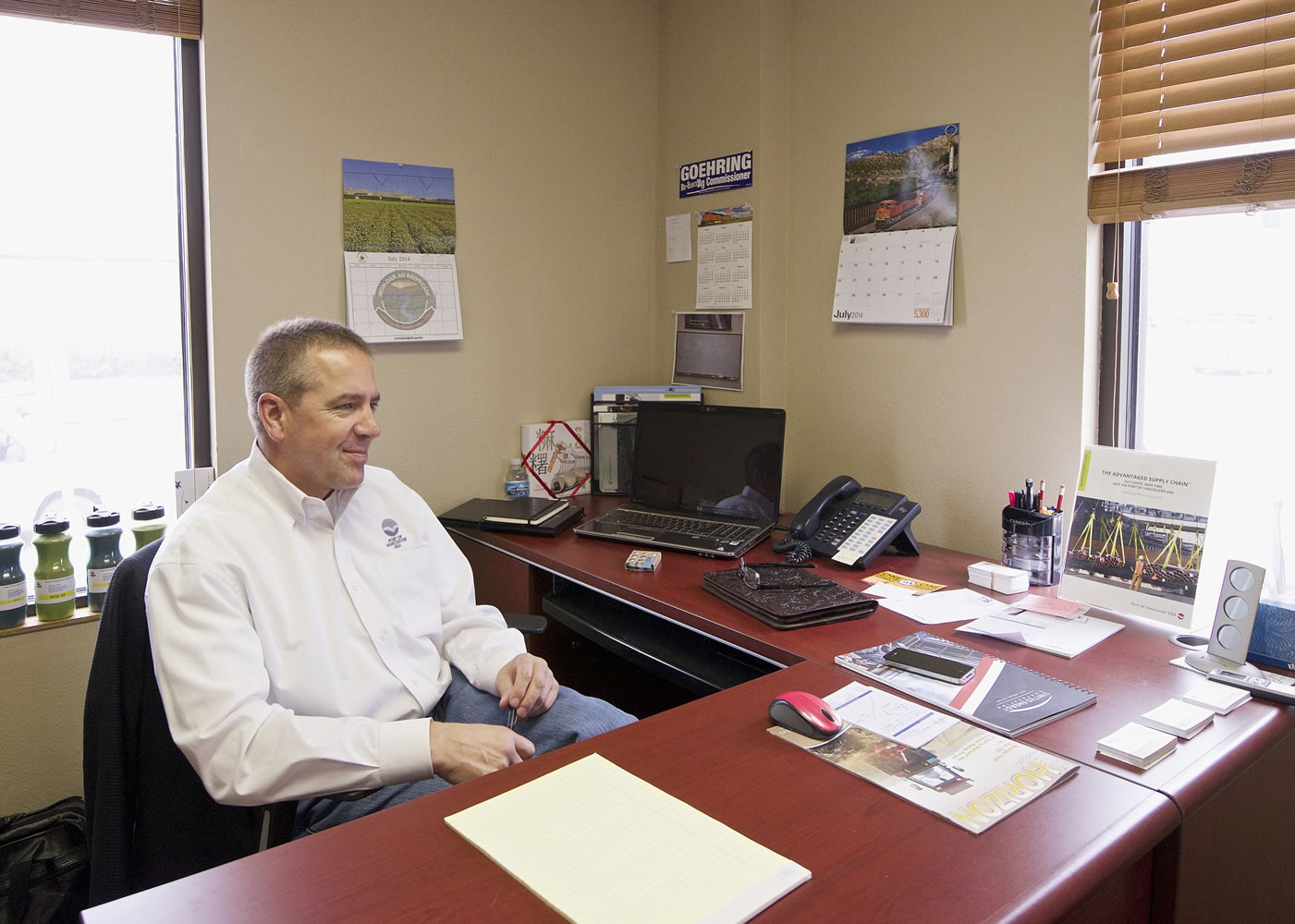The Port of Vancouver manager who spearheaded efforts to drum up new business in North Dakota, including a controversial proposal to haul Bakken crude to Vancouver by rail, has left the port to take a job with an oilfield services company in that state’s city of Williston.
The departure of Curtis Shuck, after more than nine years at the port, including most recently as its senior sales director, “was purely voluntary on his part,” port Commissioner Jerry Oliver said Thursday. “He’s been a real spark plug. His list of accomplishments is long and noteworthy.”
Shuck could not be immediately reached for comment. His LinkedIn page describes his new job as vice president of business development for Red River Oilfield Services in Williston. Shuck’s departure isn’t the first time a top manager has left the Port of Vancouver in recent weeks. In early January, The Columbian confirmed through a port spokeswoman that the port’s director of finance, Jeff Estuesta, had left.
In his recent work for the port, Shuck had been spending two weeks per month in the Williston area as part of the port’s opening of a field office there to generate more business.
“We’re shipping a lot of steel drill pipe back there,” Oliver said, as well as “frac” sand, which is used in extracting oil and gas by way of hydraulic fracturing. “This is all due to Curtis.”
Shuck also advanced a deal under which the port leases rail cars that would otherwise return to the port empty for transport of agricultural products from North Dakota to Vancouver. In August 2014, the port’s Board of Commissioners voted unanimously to authorize the port to enter into the arrangement.
Oliver said Shuck also played important roles in bringing the port’s Centennial Industrial Park on line and in working to secure a potash export facility at the port’s Terminal 5. The potash deal, which the port and Australian mining giant BHP Billiton negotiated exclusively for nearly four years, failed to materialize.
Shuck joined the port in October 2005 as its director of economic development and facilities. Previously, he spent nine years as terminals and facilities manager for the Port of Port Angeles. At the Port of Vancouver, Shuck sometimes presented proposals to commissioners during the board’s regular public meetings.
During a commission meeting in July 2013, Shuck spoke of economic benefits and of safety when he helped broadly outline a proposal to approve a lease with Tesoro Corp. and Savage Companies to build an oil-by-rail transfer terminal. The companies want to receive an average 360,000 barrels of crude per day.
The meeting room overflowed with opponents who spelled out multiple concerns, including a deadly oil-train derailment in Canada, crude spills, noxious new air emissions and global warming. Shuck said Tesoro and Savage would have to agree to stringent rail and operation safety plans before the port would allow them to operate the terminal. “But after you sign the lease,” interrupted one attendee of the July 22, 2013, commission meeting.
In 2014, Shuck drew a salary of $138,556, not including benefits. Oliver said Thursday the port already is searching for Shuck’s successor. “I hope we find someone half as good as Curtis to fill his shoes. I’m confident we will find a good person for that. It’ll take someone six months to a year to get up to his speed.”




